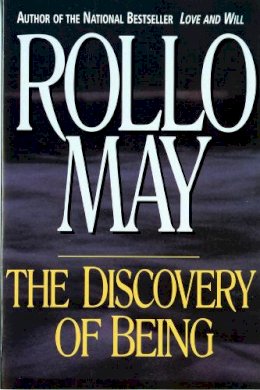10%OFF

Stock image for illustration purposes only - book cover, edition or condition may vary.
The Discovery of Being: Writings in Existential Psychology
Rollo May
€ 21.99
€ 19.71
FREE Delivery in Ireland
Description for The Discovery of Being: Writings in Existential Psychology
Paperback. Rollo May draws on the insights of Kierkegaard, Nietzsche, Freud, and other great thinkers to offer a helpful roadmap of the ideas and techniques of existential psychotherapy. Num Pages: 192 pages. BIC Classification: HPCF3; JMA. Category: (P) Professional & Vocational; (UP) Postgraduate, Research & Scholarly; (UU) Undergraduate. Dimension: 215 x 153 x 12. Weight in Grams: 164.
He pays particular attention to the causes of loneliness and isolation, and to our search for stability in an age of anxiety.
He pays particular attention to the causes of loneliness and isolation, and to our search for stability in an age of anxiety.
Product Details
Format
Paperback
Publication date
1995
Publisher
WW Norton & Co United States
Number of pages
192
Condition
New
Number of Pages
192
Place of Publication
New York, United States
ISBN
9780393312409
SKU
V9780393312409
Shipping Time
Usually ships in 7 to 11 working days
Ref
99-1
About Rollo May
Rollo May (1909-1994) taught at Harvard, Princeton, and Yale, and was Regents' Professor at the University of California, Santa Cruz. An influential psychologist, he was the best-selling author of Love and Will, as well as the author of The Courage to Create, Man's Search for Himself, The Meaning of Anxiety, and Psychology and the Human Dilemma.
Reviews for The Discovery of Being: Writings in Existential Psychology
"Clear, accurate, and interesting. There is no better short introduction to the existential approach to psychology."
Dallas Morning News "A brisk, clear, popular introduction to existential psychology/psychotherapy. . . [Rollo May] makes a good case for it as a pragmatically broad and flexible method. . . . A solid, stimulating presentation."
Kirkus Reviews
Dallas Morning News "A brisk, clear, popular introduction to existential psychology/psychotherapy. . . [Rollo May] makes a good case for it as a pragmatically broad and flexible method. . . . A solid, stimulating presentation."
Kirkus Reviews
.png)